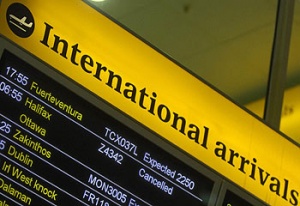IATA 2011: Sustainable profit holds key to future of aviation

Sustainable profit is the key to future success of global aviation, according to head of the International Air Transport Association.
Speaking at the aviation body’s 67th AGM in Singapore, Director General and CEO Giovanni Bisignani called upon the industry to build a sustainable future based on renewed leadership, continuous innovation, and co-operation.
“After a decade of crises and shocks, airlines today are safer, stronger, leaner, and greener. But sustainable profitability remains elusive. We expect airlines to make just $4 billion profits this year on revenues of $598 billion. The challenge is to prepare to handle 16 billion passengers and 400 million tonnes of cargo by 2050 with efficient infrastructure and effective technology, while making sustainable profits and satisfying customer needs,” said Bisignani.
Bisignani noted that sustainable profitability would be the biggest challenge for an industry with a net return of 0.1% over the last four decades. “We know what will not work. Cost-cutting alone does not increase long-term profits. Unbundling erodes the value of the base product. And re-regulation would kill efficiency and innovation,” said Bisignani.
“We need efficient processes to cope with the volumes and evolving customer demand. We need technology-based solutions for the environment and security challenges, and we need air traffic management that goes beyond national borders.
ADVERTISEMENT
We need airport development that is smarter in meeting future demands. And we need sustainable profitability to support innovation and reward shareholders,” he said.
Bisignani also reported on the results of Vision 2050 - IATA’s initiative to determine a long-term vision for the air transport industry - and reviewed the past decade to highlight achievements and unfinished business.
The key conclusions of Vision 2050 are the need for stronger partnership across the value chain and a more proactive role for governments. “We must break down silos in the value chain to rebalance financial reward with risks, and create a new value proposition so that competition is not just based on price. And governments must deliver policy decisions that replace intervention with commercial freedoms, reduce barriers to exit, and allow airlines to restructure like normal businesses,” said Bisignani.
“Aviation is much more secure today than in 2001, at a cost of $7.4 billion annually. But our passengers only see hassle because governments are not working together. Passengers should be able to get from curb to gate with dignity—without stopping, stripping, unpacking, and certainly without groping. We must make coordinated investments for civilized flying,” said Bisignani.
IATA called for security improvements that focus on replacing the 40-year-old airport checkpoint with a modern approach that is risk-based and powered by intelligence and technology.
IATA calls on Big Oil to commercialize sustainable biofuels at competitive prices. Sustainable biofuels, with their potential to cut the industry’s carbon footprint by up to 80%, could make a major contribution to the industry’s program to fulfill its climate change commitments. “Big Oil is green in its advertising but not in its actions. It prefers to pocket the $1 trillion in profits that the Big 5 made over the last decade, than to invest in green initiatives,” said Bisignani as he called for targets to provide aviation biofuels at competitive prices.

